Graham Reid | | 7 min read
Chris Whitley: Big Sky Country
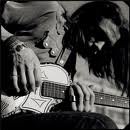
Sometimes you can just get too much too
soon - and the wrong kind of attention. Take American singer Chris
Whitley, whose debut album Living with the Law has been picking up
praise by the bucketload.
Sure it’s a great album; Rolling
Stone called it “riveting and original” before acclaiming Whitley
as “a visionary who trades on archetypal symbols and classic riffs
to fashion his own twilit American mythology.”
The Independent in London had a good
line, too: “Whitley is clearly a troubled mind -- five parts
old-time religion, five parts dirty sex and 10 parts guilt and
suffering. Nick Cave would probably kill to be him.”
It seems the commentators are
clambering over each other to use their best lines on Whitley's
amalgam of weirdly detached vocals, unnerving steel guitars and
Cinerama sound courtesy of his suitably smoking band.
And Time magazine shot out of the
starting gate with a feature on the new generation of artists which
included Whitley and his “peak-neat debut” in a two-page spread
along with Richard Thompson, James McMurtry and Will T. Massey.
'That’s the kind of media attention
most artists would be delighted with, especially for their first
album -- and particularly that Time magazine spread. You can’t
begin to imagine how many homes and doctors’ waiting rooms that
goes to.
Whitley isn’t so sure. In fact, he’s
just a little irritated by it.
"Man, to be honest, that Time
thing bothers me.” he says quietly from his hotel room in
Cincinnati, where he is opening for Tom Petty.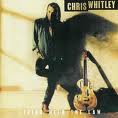
“Them guys like James McMurtry and
Will T. Massey are great writers and all, but I don't have a lot in
common with them other than perhaps a similar need to write.
"I don’t strum a guitar or come
out of that Austin, Texas, country-folk heritage. I feel more -- I
dunno -- acid-rock than that," he laughs.
“And then there’s the blues, which
is a big part of what I do, although I have to say I find a lot of
blues very boring - most blues in fact. I respect it, but don’t get
much out of it.”
To have Whitley, whose album is
smoke-cured in the sound of disconcerting rural blues, tell you the
music doesn’t do much for him is a major heresy. It is the
cornerstone of his music and every writer has hauled out the name and
sound of Robert Johnson by way of reference.
“I guess everyone needs a reference
point but I don’t feel particularly rootsy or traditional – but I
guess I do sound old-fashioned when compared with Paula Abdul.
“I feel the way we recorded the album
-- and this may sound audacious of me -- is more sophisticated than
much of the high-tech music we have now. I actually don't mind some
of that stuff. It’s something I’ve played before, or at least
tried to.”
And when Whitley embarks on anecdotes
about his life, the fragmented images of his lyrics and supple,
shifting guitar sounds find their parallel in a life in which, as he
says, he “grew up moving.”
Born in Houston, moved to Dallas, moved
to Connecticut, moved to Mexico when his parents split up, moved to
Vermont . . . The list goes on until Whitley found himself in Belgium
in the early ’80s, “before long hair became popular again,”
playing dobro and “new-wave electro-pop.”
“I felt very insecure and like I
didn’t fit in, so finally gave up. Mostly out of frustration and
desperation. I started playing slide guitar again for the first time
in four years and wrote Phone Call From Leavenworth with no chorus
and no beats-per-minute,” he says, referring to one of the uneasy,
moody blues songs on Living with the Law.
By abandoning rock, Whitley found
himself instinctively drawn back to the music he grew up with. His
parents, he says, were married young "and were sort of weirdos."
They were into Dylan very early on and Whitley grew up with the
Sixties generation of blues players, white artists such as Eric
Clapton, Jimmy Page and the Doors.
But it was the first Johnny Winter
Columbia album which made me want to play National steel guitar.
There was a song called Dallas which was slide-guitar delta blues
with mean, weird lyrics. It was blues rock from hell and very much
that Texas thing. It got me.
“I love that rural blues thing, it’s
like an idea before thinking about it. It has a real purity."
When Whitley puts that strange,
primitive guitar sound together with his literate lyrics it also has
a purity about it. His lyrics flick out images and an acute visual
sense which he attributes to both his parents being visual artists.
The sound appealed to film-maker Ridley Scott (Bladerunner, Alien)
who heard a rough demo of Big Sky Country and included it on the
soundtrack of his most recent film, Thelma and Louise.
But that demo dated from when MCA
Records was toying with signing Whitley, who was playing around New
York. They waited too long and Sony Music grabbed him.
At a barbecue in New Orleans, Whitley
was introduced to Daniel Lanois (producer of the Neville Brothers and
U2), who immediately heard echoes of his own sound in Whitley’s
playing. Lanois’ studio was made available for Whitley's sessions
with Lanois' keyboard player Malcolm Burn at the production desk.
Those typically Lanois ambient sounds
which “suggest space, depth, history and freedom," according
to the Independent, allow the music to breathe.
“Whitley appears to have learned from
the Velvet Underground," said Rolling Stone, “about the
unsettling pleasures of novel instrumentation; he juxtaposes, for
example, harsh electric guitar with viola."
Sony Music clearly knew they had
somebody special with Whitley and, perhaps encouraged by their
success with the Robert Johnson Complete Recordings box set last year
(“that was the coolest thing, that last year that sold 500,000
copies,” says Whitley), they decided to market him carefully.
In America in early May the company
sent out postcards to "tastemakers" and followed up a few
days later with an advance promotional cassette mailout. Whitley
undertook a promotional tour in June and sampler 12 inches were sent
to college radio.
A “full CD Digipak” was sent to
“taste-makers" on June 18 and the following day the promo CD
of Living with the Law was “blitzed to AOR/ALT radio stations.”
The adults and alternatives had their interest prodded, the
professionals were enticed.
There was more.
Teaser ads were placed in various
significant publications and after the album was eventually released
on July 2 there were full-colour ads in magazines such as Billboard,
Spin, Musician and Guitar.
It was little wonder Whitley hit that
two-page spread in Time -- he was hard to miss.
Fortunately he’s also very good,
although he still has doubts about what it all means.
He worries that all the attention means
he`ll have little of the seclusion he needs to write and wonders if
by doing all the press interviews he’s giving himself away too
much.
“So far it has been therapeutic,”
he says in the same quiet, measured voice that is all over the album.
“I'm doing all these interviews but at some time all that will stop
and I won’t be news. That’ll be a good time.
“You know, I read that Time article
and thought, 'Fuck, that guy should have listened to the record',"
he says with a sigh of frustration.
"I guess I shouldn’t care too much about it, but maybe doing all this you do end up giving away a piece of yourself. I don’t know if there is anyone in music I have much in common with . . .
"I just don’t know about all this . . . "
After a career of highs and lows, and consistent critical acclaim if never matched by CD sales, Chris Whitley died of lung cancer in November 2005. He was 45.

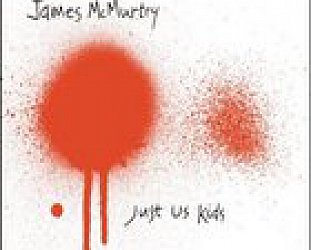
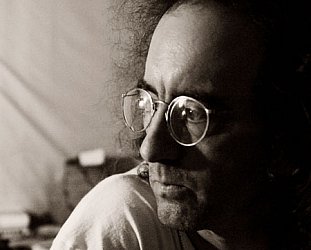

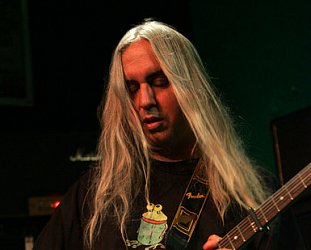

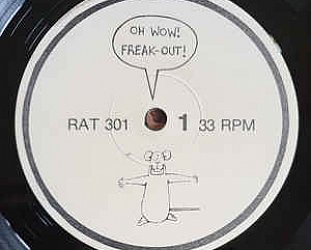
Greg Fleming - May 24, 2010
For my money Living With The Law was the best rock debut of the 90s. He followed it up with the dark, druggy Din of Ecstasy, which sounded like Hendrix in a junkie free-fall, no more swooping, endorphin inducing soundscapes here, it was and is a hard listen... still it has its moments(O God My Heart Is Ready is just waiting to be done gospel style by someone brave enough and the Jesus and Mary Chain cover was good too.) Indeed all his subsequent records always had something. Dirt Floor's Ball Peen Hammer, and Under The Radar from Rocket House being a particular faves.
SaveI remember the day news came through of his death. I'd been listening to LWTL that very morning.
bobdobrorock - Aug 19, 2010
Thanks for publishing the article. Chris Whitley was the main reason I picked up a dobro. I hadn't read this interview before but it's great to read.
SaveIn my opinion he's not so much a blues player but an experimental guitarist. The later albums reveal more of the experimental approach than the first one. This was the reason I thought Whitley wasn't that comfortable with his debut-album. But this article seems to show otherwise.
Thanks
Bob Kolsters
Holland
post a comment